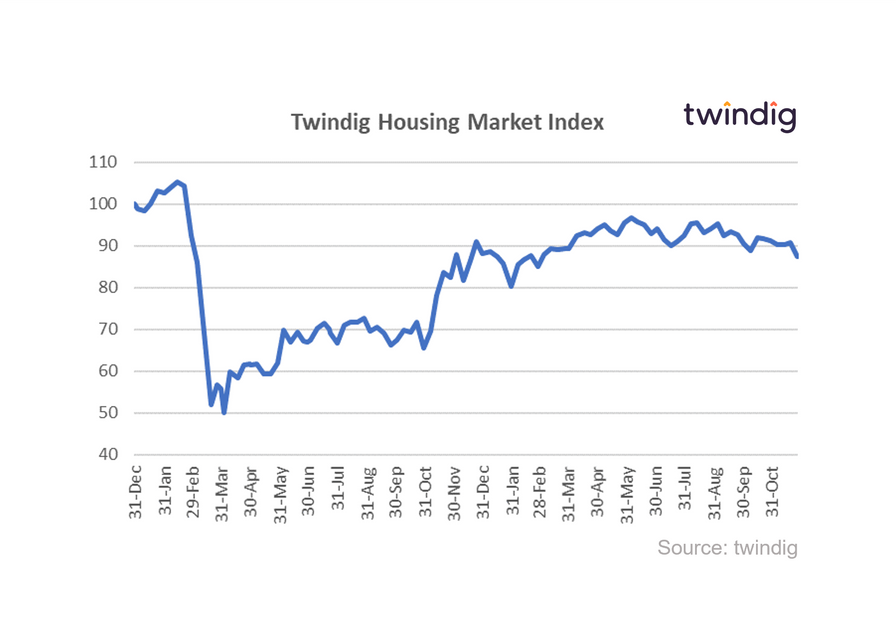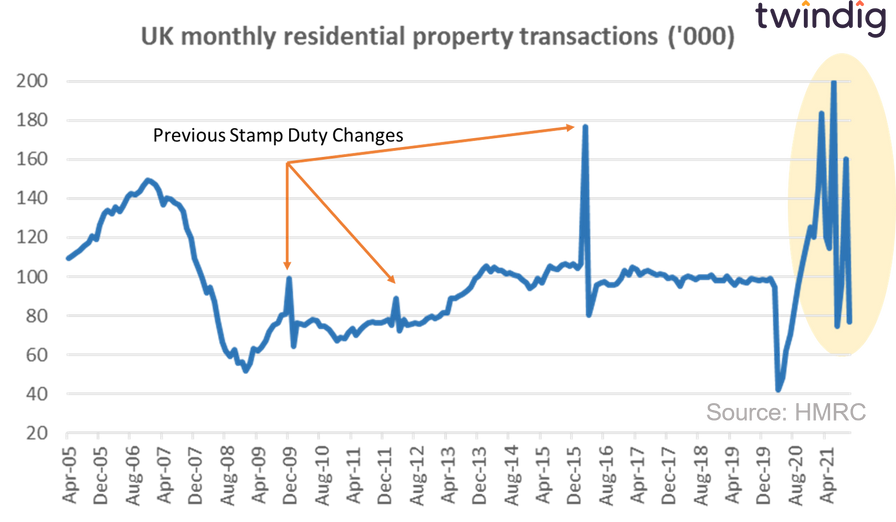Twindig Housing Market Index (HMI) - 27 November 21

The Twindig Housing Market Index moved down by 3.7% this week to 87.4 this week, its biggest fall since 11 December 2020, as COVID-19 seemed to be making a comeback with the B.1.1.529 variant. A timely reminder that we are not out of the COVID woods just yet. Investors typically react hard and fast to negative news and the prospect of further rises in COVID cases, fatalities and a possible return to lockdown led investors to reduce their confidence in the outlook for the UK housing market. Uncertainty and fear are often common bedfellows and we can only hope that the new COVID-19 variant 'Omicron' will turn out to less harmful that initial reports suggest.
the week that housing transactions plummeted as they began their post stamp duty holiday hangover, the Nationwide reported that following a period of extreme house price inflation deposits remain the biggest barrier to homeownership and housing supply took a tumble during lockdown.
The fall in housing transactions, although large, was not unexpected (read more here) because we have seen similar drops following previous stamp duty holidays, although the stop-start nature of the COVID stamp duty holiday makes the pattern of transactions look more like a COVID hokey cokey than the outworking of planned and considered Government policy...

We can only hope that now the stamp duty holiday is over transaction levels will return to their previous level of stability...
That the Nationwide reported that deposits are the biggest barrier to home ownership in the UK is no surprise. In our view, this reflects the fact that we are trying to buy homes based on multiples of income when the link between house prices and income sadly broke a long time ago.
We continue to believe that fractional homeownership is the way to solve the affordability crisis, and you can read our full thoughts here.
Housing supply was hit by the COVID lockdowns, although as housebuilding takes place in the open air, the sector's was not locked down for long and we view the impact on supply as a temporary blip rather than a cause for longer-term concern.